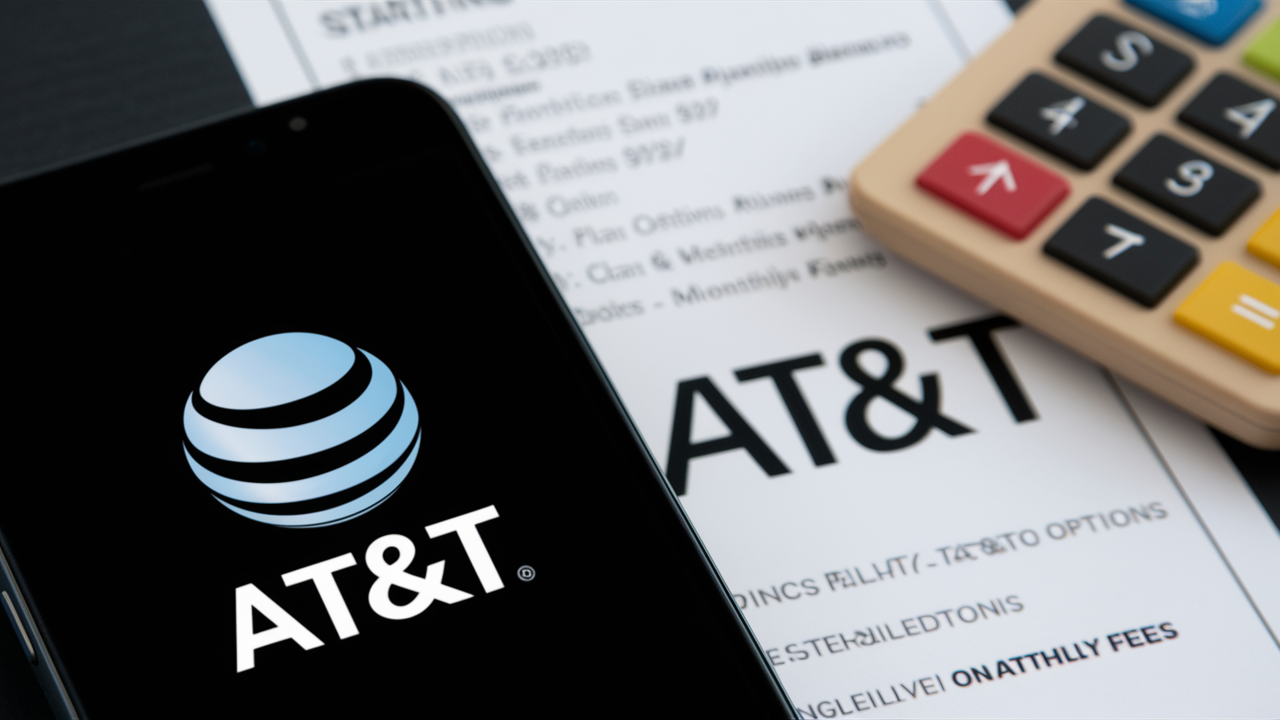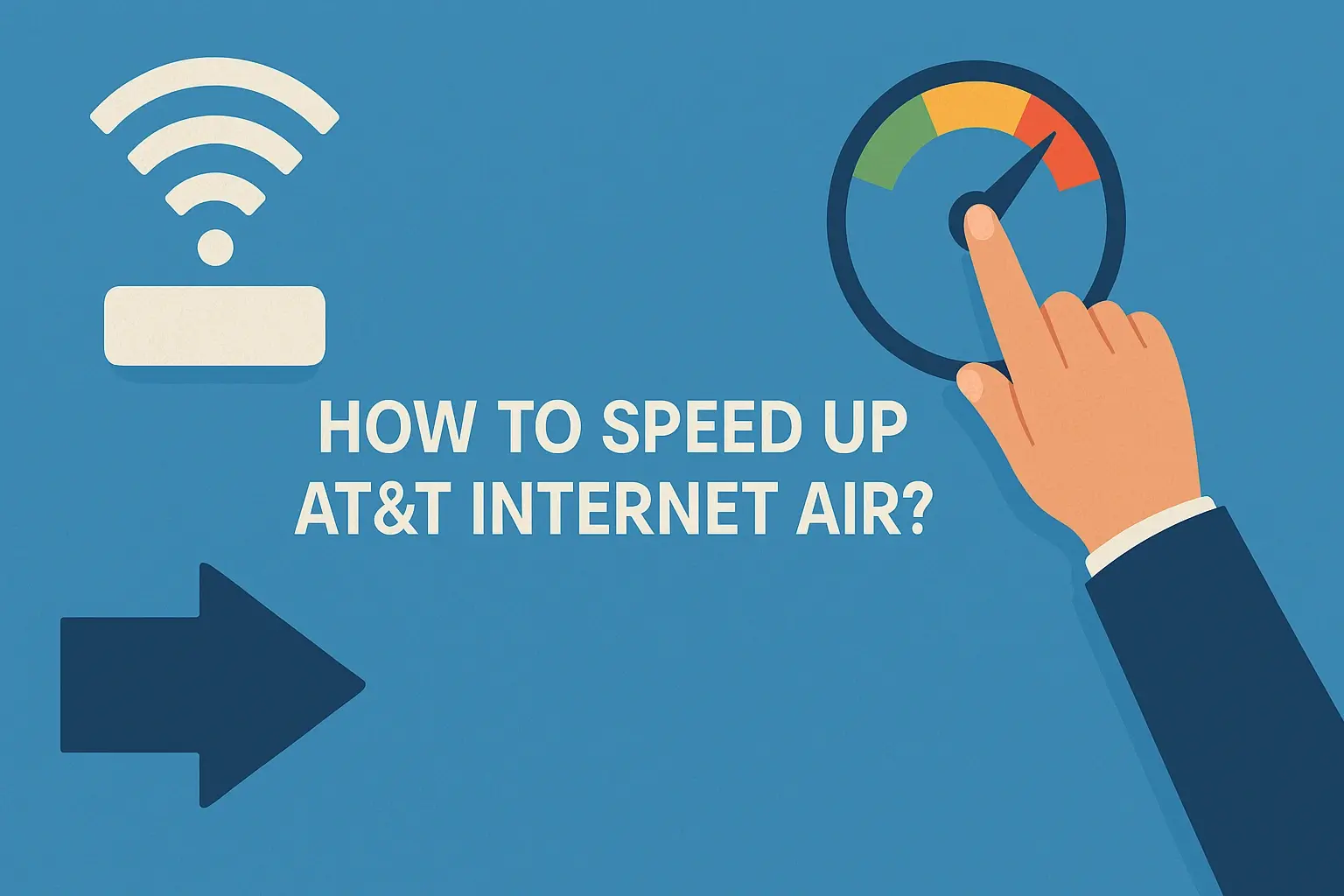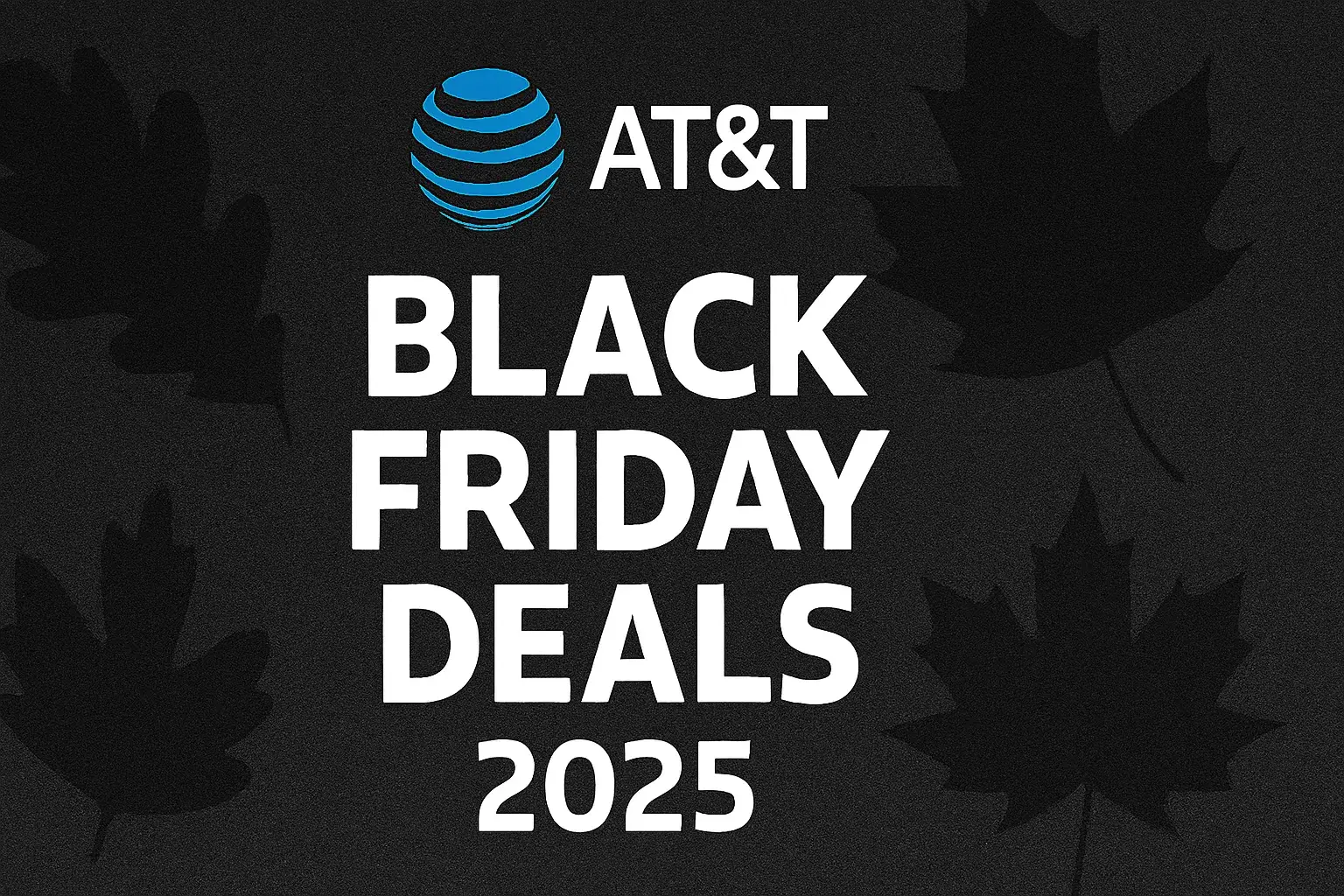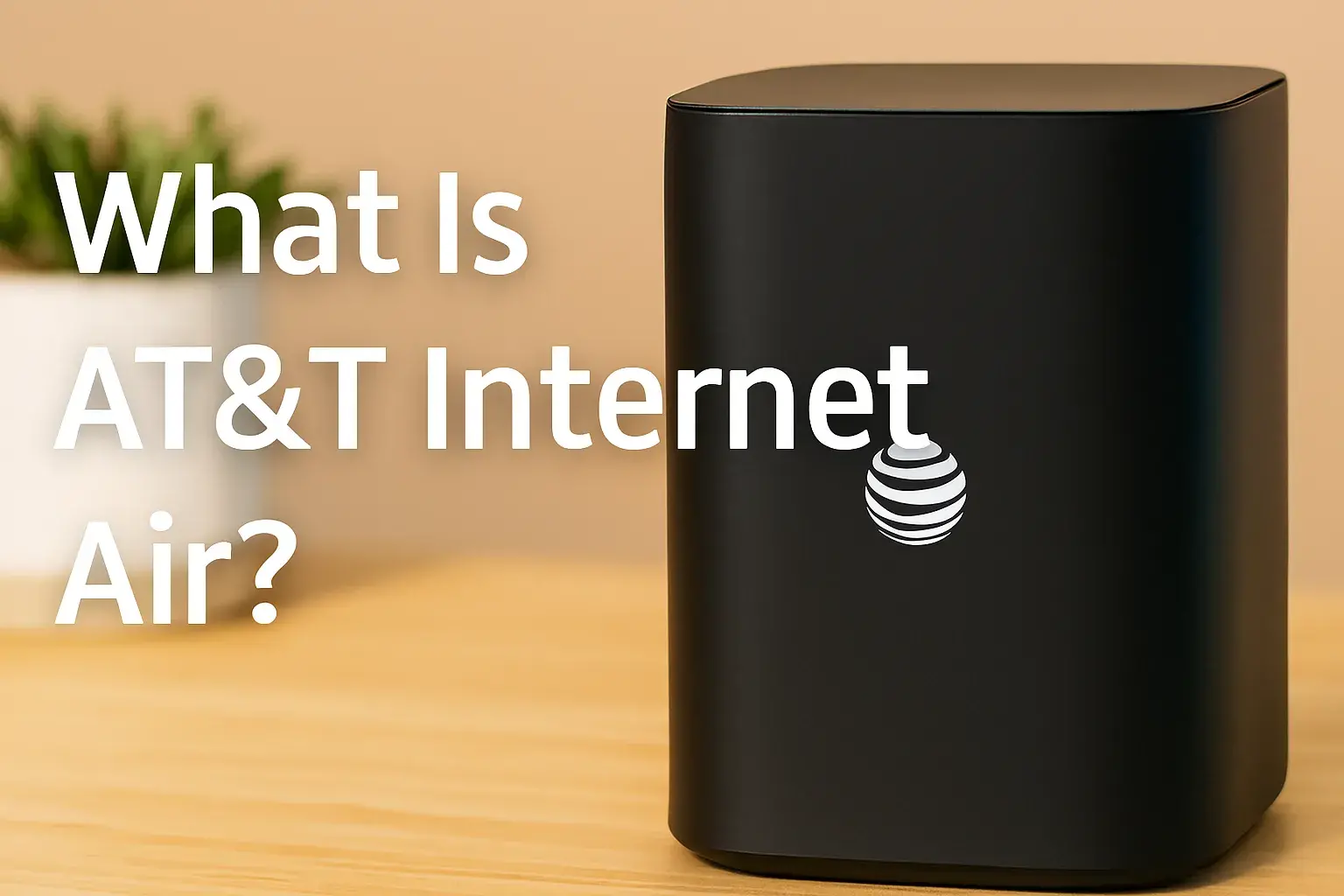How much does it cost to start with AT&T?

Navigating the initial investment for AT&T services can feel complex. This guide breaks down the typical costs associated with starting with AT&T in 2025-26, covering everything from activation fees to equipment expenses, empowering you to make informed decisions and budget effectively for your new service.
Understanding AT&T Fees: What to Expect
When you decide to start with AT&T, whether for wireless, internet, or TV services, there are several types of fees you might encounter. Understanding these upfront can prevent surprises and help you accurately budget for your new service. The primary fees to be aware of generally fall into a few categories: activation fees, equipment costs, installation fees, and sometimes early termination fees if you break a contract. For 2025-26, AT&T's fee structure remains relatively consistent, though promotional offers can significantly alter the initial outlay.
Activation Fees
Activation fees are common across telecommunications providers. They cover the administrative costs associated with setting up your new account and provisioning your service. For AT&T wireless, this fee is typically a one-time charge per line activated. For internet and TV services, it's often a one-time charge per account. The exact amount can vary based on the service type and any ongoing promotions AT&T might be running. In 2025-26, you might see activation fees ranging from $30 to $45 for wireless lines, and potentially similar amounts for home services, though these are often waived during special campaigns.
Equipment Costs
Depending on the service, you may need to purchase or rent equipment. For AT&T wireless, this primarily refers to the cost of the smartphone itself. While AT&T offers various device payment plans and trade-in offers, the upfront cost of a new flagship phone can range from $700 to over $1,200 in 2025-26. For AT&T Internet, you might need a modem/router, which AT&T often provides, sometimes for a monthly rental fee or included in the plan cost. AT&T TV services typically require a set-top box, which can also be rented or sometimes purchased.
Installation Fees
For home services like AT&T Internet and AT&T TV, professional installation might be required. This fee covers the technician's visit to your home to set up the necessary wiring and equipment. The cost can vary depending on the complexity of the installation and whether it's a new service setup or a relocation. In 2025-26, standard installation fees for AT&T Internet and TV can range from $99 to $199, though self-installation kits are often available for simpler setups, potentially reducing or eliminating this cost.
Early Termination Fees (ETFs)
While not an initial cost, it's crucial to be aware of ETFs. If you sign a contract for AT&T services (especially older plans or specific promotions) and terminate the service before the contract term ends, you will likely incur an ETF. These fees are designed to compensate the provider for the revenue lost due to early termination. The amount typically decreases over the contract period. For 2025-26, ETFs can vary significantly but are often prorated based on the remaining months of your contract.
AT&T Wireless Service Costs
Starting with AT&T wireless involves understanding the costs associated with both the device and the monthly service plan. AT&T offers a variety of plans designed to cater to different user needs, from individual users to large families, with varying data allowances and features.
Device Costs
The most significant upfront cost for many new AT&T wireless customers is the smartphone. In 2025-26, the price of new smartphones continues to climb. Flagship models from Apple, Samsung, and Google can easily cost between $800 and $1,200. AT&T offers several ways to manage these costs:
- Device Payment Plans: AT&T allows you to pay for your phone in monthly installments over 24 or 36 months. This breaks down the high upfront cost into manageable monthly payments added to your bill. For example, a $1,000 phone on a 36-month plan would add approximately $28 per month to your bill.
- Trade-In Offers: AT&T frequently offers trade-in deals where you can get a credit towards a new device by trading in an eligible older smartphone. These credits can range from $100 to $1,000 or more, depending on the model you're trading in and the new phone you purchase. These credits are usually applied as monthly bill credits over 24 or 36 months.
- BYOD (Bring Your Own Device): If you already own an unlocked smartphone that is compatible with AT&T's network, you can save significantly by bringing your own device. This eliminates the device payment plan cost entirely.
Monthly Service Plan Costs
AT&T's wireless plans are structured around data usage, number of lines, and included features. Here's a breakdown of typical plan categories and their estimated costs for 2025-26:
Individual Plans
For a single user, AT&T offers plans that vary in data and features:
- AT&T Unlimited Basic: This plan typically includes unlimited data, talk, and text, with a certain amount of high-speed data before speeds are reduced. Estimated cost: $65-$75 per month.
- AT&T Unlimited Premium: Offers more high-speed data, often includes hotspot data, and may provide premium features like international calling or roaming. Estimated cost: $85-$95 per month.
Multi-Line Plans
AT&T's Unlimited plans become more cost-effective per line as you add more lines. These plans are ideal for families or shared use.
- 2-Line Plans: For two lines, the Unlimited Basic might cost around $120-$140 per month, and Unlimited Premium around $150-$170 per month.
- 3-Line Plans: For three lines, expect to pay approximately $140-$160 for Unlimited Basic and $180-$200 for Unlimited Premium.
- 4-Line Plans: For four lines, costs typically range from $160-$180 for Unlimited Basic and $200-$230 for Unlimited Premium.
Note: These prices often reflect discounts for autopay and paperless billing, which are standard AT&T offerings. Without these discounts, prices can be $5-$10 higher per line.
Activation and Other Fees (Wireless)
As mentioned, a one-time activation fee per line is common. For 2025-26, this is typically around $35 per line. If you're purchasing a new device on a payment plan, there might not be a separate activation fee, or it could be waived as part of a promotion. However, if you bring your own device, the activation fee is almost always applicable.
AT&T Internet Service Costs
AT&T offers a range of internet plans, primarily fiber optic and DSL, depending on your location. The cost is heavily influenced by the speed tier you select and the type of technology available.
Fiber Internet (AT&T Fiber)
AT&T Fiber is their premium internet service, offering symmetrical upload and download speeds. Availability is limited to specific areas. For 2025-26, typical pricing for AT&T Fiber plans includes:
- AT&T Fiber 300 Mbps: Offers speeds up to 300 Mbps download and 300 Mbps upload. This is a popular choice for smaller households or those with moderate internet usage. Estimated cost: $55-$65 per month.
- AT&T Fiber 500 Mbps: Speeds up to 500 Mbps download and 500 Mbps upload. Suitable for larger households, streaming, online gaming, and multiple connected devices. Estimated cost: $65-$75 per month.
- AT&T Fiber 1 Gig (1000 Mbps): Offers speeds up to 1 Gig download and 1 Gig upload. Ideal for power users, heavy streamers, gamers, and businesses. Estimated cost: $80-$90 per month.
- AT&T Fiber 2 Gig (2000 Mbps): The highest tier, providing up to 2 Gbps download and 2 Gbps upload. For very demanding users and future-proofing. Estimated cost: $110-$120 per month.
Key Features of AT&T Fiber:
- No data caps: Enjoy unlimited internet usage.
- No annual contracts: Most fiber plans are month-to-month.
- Equipment: AT&T typically includes a Wi-Fi gateway (modem/router) with their fiber plans. In 2025-26, this is often included at no extra monthly charge, though a one-time setup fee might apply if professional installation is chosen.
DSL Internet (AT&T Internet)
For areas where fiber is not available, AT&T offers DSL (Digital Subscriber Line) internet. Speeds are generally lower and more variable than fiber, depending on your distance from the local exchange.
- AT&T Internet 25 Mbps: A basic plan suitable for light internet use like email, web browsing, and standard-definition streaming. Estimated cost: $55-$65 per month.
- AT&T Internet 50 Mbps: Offers improved performance for HD streaming and more connected devices. Estimated cost: $65-$75 per month.
- AT&T Internet 100 Mbps: The highest tier of DSL, providing a more robust experience for moderate usage. Estimated cost: $75-$85 per month.
DSL Equipment and Fees:
- Modem Rental: AT&T often charges a monthly rental fee for the DSL modem, typically around $10-$15 per month.
- Installation Fees: A one-time installation fee, often around $99, may apply for DSL service, though self-installation options can sometimes waive this.
Installation and Activation Fees (Internet)
For both fiber and DSL, if professional installation is required, expect a fee. In 2025-26, this typically ranges from $99 to $199. However, AT&T frequently offers promotions that waive these fees, especially for new customers signing up for higher-tier plans or bundling services. Activation fees are less common for internet services compared to wireless, but it's always good to check the specific offer.
AT&T TV Service Costs
AT&T offers a variety of TV services, including AT&T TV (a live TV streaming service) and traditional satellite TV (though this is being phased out in favor of streaming options). The cost depends on the channel packages you choose and any associated equipment fees.
AT&T TV Packages
AT&T TV is a popular choice for those seeking a cable-like experience without a satellite dish. It requires a reliable internet connection. Packages for 2025-26 typically include:
- AT&T TV ENTERTAINMENT: Includes over 65 channels, featuring popular networks like ESPN, AMC, HGTV, and more. Estimated cost: $70-$80 per month.
- AT&T TV CHOICE: Offers over 90 channels, adding regional sports networks (where available), more movie channels, and specific sports channels. Estimated cost: $85-$95 per month.
- AT&T TV ULTIMATE: With over 130 channels, this package includes premium movie channels and more sports options. Estimated cost: $100-$110 per month.
- AT&T TV PREMIER: The most comprehensive package with over 140 channels, including all premium movie channels like HBO, Cinemax, Showtime, and Starz. Estimated cost: $135-$150 per month.
Important Considerations for AT&T TV:
- Promotional Pricing: AT&T TV often features introductory pricing for the first 12 months. After this period, the price increases to the standard rate.
- Contracts: While AT&T TV aims to be contract-free, some promotions might require a 2-year agreement, with early termination fees applying.
- Regional Sports Fee: Some packages may incur an additional monthly fee for regional sports networks.
Equipment Costs for AT&T TV
To use AT&T TV, you'll need an AT&T TV streaming device. AT&T typically provides one device included with your service, often through a lease or rental arrangement. For additional devices (e.g., for other TVs in your home), there may be an extra monthly rental fee, usually around $10 per device.
Installation Fees for AT&T TV:
If you opt for professional installation, expect a fee. In 2025-26, this can range from $50 to $100. However, AT&T TV is designed for easy self-setup with the provided streaming device, which can often eliminate this cost.
Traditional Satellite TV (AT&T DIRECTV)
While AT&T is shifting focus to streaming, traditional DIRECTV satellite service is still available in many areas. Costs are similar to AT&T TV streaming packages but involve satellite dish installation and equipment leases.
- Basic Packages: Starting around $60-$70 per month for a limited channel selection.
- Premium Packages: Can range from $100 to $200+ per month for extensive channel lineups, including all premium movie and sports channels.
- Equipment: Requires a satellite dish and receiver(s), typically leased for a monthly fee.
- Installation: Professional installation is mandatory and usually carries a fee, though often waived with long-term contracts.
- Contracts: DIRECTV satellite service almost always requires a 2-year contract, with significant ETFs for early termination.
Bundle Deals and Savings with AT&T
One of the most effective ways to reduce your overall monthly costs with AT&T is by bundling services. AT&T offers various bundle options that combine wireless, internet, and TV services, often resulting in significant discounts compared to subscribing to each service individually.
How Bundling Works
When you bundle, you consolidate multiple AT&T services under a single account and billing statement. This simplifies your payments and, more importantly, unlocks savings. AT&T's bundling strategy is designed to encourage customers to adopt multiple services from them, increasing customer loyalty and lifetime value.
Common Bundle Combinations and Potential Savings
Here are some typical bundle scenarios and the estimated savings you might see in 2025-26:
Internet + TV Bundles
Combining AT&T Fiber or DSL with an AT&T TV package can lead to savings of $10-$30 per month on the total bill. For example, a 500 Mbps AT&T Fiber plan bundled with the AT&T TV ENTERTAINMENT package might be priced around $120-$140 per month, whereas subscribing separately could cost upwards of $140-$160.
Internet + Wireless Bundles
AT&T offers discounts on wireless plans when bundled with their internet services. This can manifest as a monthly discount on your wireless bill, often ranging from $10 to $20 per line, or a discount on the internet plan itself. For instance, a 4-line Unlimited Premium plan might see a $10 per line discount ($40 total) when bundled with AT&T Fiber.
Triple Play Bundles (Internet + TV + Wireless)
The most comprehensive bundles combine all three services. These typically offer the largest savings, potentially reducing the total monthly bill by $30-$60 or more, depending on the specific plans chosen. A triple play bundle might include AT&T Fiber 500 Mbps, AT&T TV CHOICE, and two lines of AT&T Unlimited Premium for a combined price that is significantly less than the sum of individual service costs.
Bundling Benefits Beyond Cost Savings
- Simplified Billing: One bill for all your AT&T services makes managing your expenses easier.
- Exclusive Offers: Bundled customers may be eligible for special promotions, such as free equipment upgrades, streaming service subscriptions (like Max), or enhanced customer support.
- Loyalty Rewards: AT&T often provides loyalty benefits or better upgrade options for customers who maintain bundled services.
Tips for Maximizing Bundle Savings
- Compare Packages Carefully: Ensure the bundled services meet your actual needs. Don't pay for more channels or internet speed than you require.
- Check for Promotions: AT&T frequently runs limited-time offers on bundles.
- Negotiate: If you are an existing customer or are comparing offers, don't hesitate to ask about potential discounts or customized bundle deals.
- Consider Contract Terms: Be aware of any contract lengths associated with bundled packages, especially if they include discounted pricing.
Additional Costs and Considerations
Beyond the core service fees, activation charges, and equipment costs, several other factors can influence the total expense of starting with AT&T. Being aware of these can help you budget more comprehensively.
Taxes and Fees
It's important to remember that the advertised monthly prices for AT&T services often do not include taxes and other regulatory fees. These can add a significant percentage to your bill, typically ranging from 5% to 20% or more, depending on your location and the specific services you subscribe to. For wireless services, these fees can include federal, state, and local taxes, as well as universal service fund contributions and other regulatory charges. For home services, taxes and fees are also applied based on local regulations.
Service Upgrades and Add-ons
If you decide to upgrade your service tier later (e.g., increase internet speed, add more data to your wireless plan, or subscribe to premium TV channels), there will be an associated increase in your monthly bill. Similarly, add-ons like international calling packages, premium security features for your internet, or extra streaming subscriptions will incur additional charges.
Data Overage Charges (Wireless)
While AT&T's current unlimited plans generally do not have overage charges in the traditional sense (your speed is reduced after exceeding a high-speed data allowance), it's crucial to understand the terms. If you are on an older plan or a limited data plan, exceeding your data allowance can result in expensive overage fees. For 2025-26, most new AT&T wireless plans focus on deprioritization after a certain data threshold rather than outright overage charges.
International Services
If you plan to use your AT&T services internationally, be prepared for additional costs. This includes:
- International Roaming: Daily or monthly passes are available for many countries, but without them, per-minute, per-text, and per-megabyte charges can be very high.
- International Calling: Calling numbers outside of your country typically incurs per-minute charges unless you subscribe to an international calling plan.
- International Data: Data usage while roaming internationally can be extremely expensive if not covered by a specific plan or pass.
Service Protection Plans
AT&T offers optional service protection plans for wireless and home services. These plans cover accidental damage, loss, or theft (for wireless) and technical support or repairs (for home services). While they can save you money in the event of an incident, they add to your monthly bill. For wireless, these plans can range from $10 to $20 per month per device, depending on the level of coverage. For home services, protection plans might be around $10-$15 per month.
Moving or Relocating Services
If you move within AT&T's service area, you can usually transfer your service. There might be a small transfer fee, and you may need new equipment or installation, which could incur additional costs. If you move to an area where AT&T doesn't offer the same services or technology, you might face cancellation fees if you are under contract.
Discounts and Promotions
Always be on the lookout for available discounts. AT&T often provides:
- Military Discounts: For active duty military personnel and veterans.
- First Responder Discounts: For police officers, firefighters, and EMTs.
- Student Discounts: Sometimes available on wireless plans.
- Employer Discounts: Some large employers have partnerships with AT&T for discounted rates.
These discounts can help offset the overall cost of your AT&T services.
Making the Most of Your AT&T Investment
Starting with AT&T involves more than just selecting a plan; it's about making a strategic investment in your connectivity. By understanding the various costs, leveraging available savings, and planning for future needs, you can ensure your AT&T services provide maximum value. Here’s how to optimize your experience and investment in 2025-26.
1. Thoroughly Assess Your Needs
Before committing to any plan, take stock of your actual requirements. For wireless, consider how much data you and your family truly use. Do you primarily use Wi-Fi, or are you constantly on cellular data? For internet, what speeds are genuinely necessary for your household's activities? Bundling is great, but only if the components fit your lifestyle. Overpaying for unused data or excessive internet speeds is a common pitfall.
2. Prioritize Bundles and Promotions
As detailed earlier, AT&T's bundle deals offer substantial savings. Actively seek out these offers when signing up. Also, be vigilant about promotional pricing. Many plans offer introductory rates for the first 12-24 months. Understand what the price will be after the promotion ends so there are no billing surprises. Don't hesitate to inquire about current promotions when you call or visit an AT&T store.
3. Leverage BYOD and Refurbished Devices
The cost of new smartphones is a major barrier for many. If your current phone is still in good working condition and compatible with AT&T's network, bringing your own device (BYOD) can save you hundreds, if not thousands, of dollars over the life of your service. If you need a new device, consider AT&T's certified pre-owned or refurbished options. These devices are thoroughly inspected, repaired, and come with a warranty, offering significant savings over brand-new models.
4. Understand Your Contract Terms
While many AT&T services are moving towards no-contract options, some plans or promotions may still involve contracts. Carefully read the fine print regarding early termination fees (ETFs). If you anticipate moving or changing providers frequently, a no-contract plan might be more suitable, even if it means a slightly higher monthly cost or upfront equipment payment.
5. Utilize Autopay and Paperless Billing
AT&T consistently offers discounts for customers who sign up for automatic payments and paperless billing. These discounts, typically $5-$10 per line for wireless or a fixed amount for home services, are easy to obtain and contribute to ongoing savings. Ensure your bank account or credit card is set up for automatic deductions to avoid late fees and secure these discounts.
6. Explore Available Discounts
Don't overlook potential discounts like those for military personnel, first responders, or specific employers. These are often overlooked but can provide meaningful reductions in your monthly bill. Verify your eligibility and ensure the discount is applied correctly to your account.
7. Monitor Your Usage and Adjust as Needed
For wireless services, regularly check your data usage through the AT&T app or website. If you consistently use far less data than your plan allows, you might be able to downgrade to a cheaper plan. Conversely, if you're frequently nearing your high-speed data limit, consider upgrading to a plan with a higher allowance or a truly unlimited option to avoid speed reductions.
8. Be Proactive with Customer Service
If you encounter billing errors, technical issues, or have questions about your service, contact AT&T customer service promptly. Resolving issues early can prevent them from escalating and potentially costing you more. For existing customers, especially those with bundled services, proactive engagement can sometimes lead to better retention offers or service adjustments.
Conclusion
Starting with AT&T in 2025-26 presents a spectrum of costs, from minimal activation fees on promotional offers to significant upfront investments in the latest smartphones. Understanding the nuances of activation fees, equipment purchases, installation charges, and monthly service rates across wireless, internet, and TV is paramount. By carefully assessing your individual or household needs, actively seeking out bundle deals and promotions, and leveraging options like BYOD or refurbished devices, you can significantly manage and reduce your initial and ongoing expenses. Remember to factor in taxes, fees, and potential add-ons for a true total cost of ownership. With informed choices and strategic planning, your AT&T service can be a valuable and cost-effective part of your digital life.





